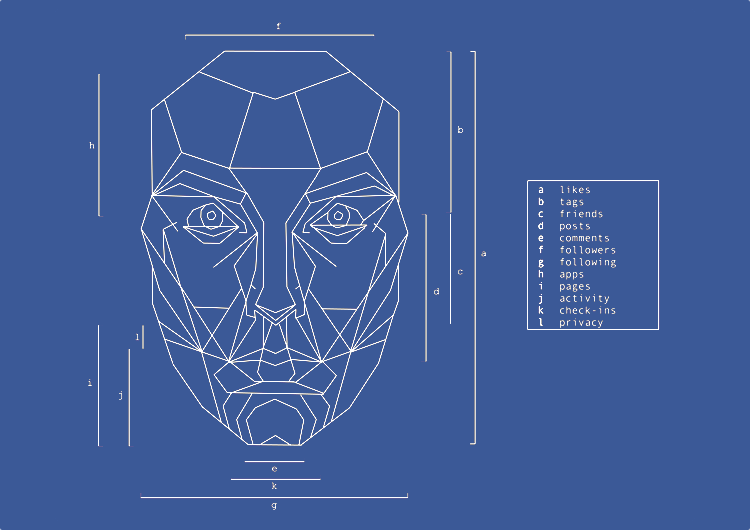INSUBCONTINENT EXCLUSIVE:
Osonde Osoba
Contributor
Share on Twitter
Osonde Osoba is an engineer at the nonprofit,
nonpartisan RAND Corporation and a member of the faculty of the Pardee RAND Graduate School.
As a teenager in Nigeria, I tried to build
an artificial intelligence system
I was inspired by the same dream that motivated the pioneers in the field: That we could create an intelligence of pure logic and
objectivity that would free humanity from human error and human foibles.
I was working with weak computer systems and intermittent
electricity, and needless to say my AI project failed.Eighteen years latermdash; as an engineer researching artificial intelligence, privacy
and machine-learning algorithms — I&m seeing that so far, the premise that AI can free us from subjectivity or bias is also disappointing
We are creatingintelligence in our own image
And that not a compliment.
Researchers have known forawhilethat purportedly neutral algorithms can mirror or even accentuate racial, gender
and other biases lurking in the data they are fed
Internet searches on names that are more often identified as belonging to black people were found to prompt search engines to generate ads
Algorithms used for job-searching were more likely to suggest higher-paying jobs to male searchers than female
Algorithms used in criminal justice also displayed bias.
Five years later, expunging algorithmic bias is turning out to be a tough problem
It takes careful work to comb through millions of sub-decisions to figure out why the algorithm reached the conclusion it did
And even when that is possible, it is not always clear which sub-decisions are the culprits.
Yet applications of these powerful technologies
are advancing faster than the flaws can be addressed.
Recent researchunderscores this machine bias, showing that commercial
facial-recognition systems excel at identifying light-skinned males, with an error rate of less than 1 percent
But if you&re a dark-skinned female, the chance you&ll be misidentified rises to almost 35 percent.
AI systems are often only as intelligent
— and as fair — as the data used to train them
They use the patterns in the data they have been fed and apply them consistently to make future decisions
Consider an AI tasked with sorting the best nurses for a hospital to hire
If the AI has been fed historical data — profiles of excellent nurses who have mostly been female — it will tend to judge female
candidates to be better fits
Algorithms need to be carefully designed to account for historical biases.
Occasionally, AI systems get food poisoning
The most famous case wasWatson, the AI that first defeated humans in 2011 on the television game show Jeopardy
Watson masters at IBM needed to teach it language, including American slang, so they fed it the contents of the online Urban Dictionary
But after ingesting that colorful linguistic meal, Watson developed a swearing habit
It began to punctuate its responses with four-letter words.
We have to be careful what we feed our algorithms
Belatedly, companies now understand that they can''t train facial-recognition technology by mainly using photos of white men
But better training data alone won''t solve the underlying problem of making algorithms achieve fairness.
Algorithms can already tell you
what you might want to read, who you might want to date and where you might find work
When they are able to advise on who gets hired, who receives a loan or the length of a prison sentence, AI will have to be made more
transparent — and more accountable and respectful of society values and norms.
Accountability begins with human oversight when AI is
making sensitive decisions
In an unusual move,Microsoft president Brad Smithrecently called for the United States government to consider requiring human oversight of
facial-recognition technologies.
The next step is to disclose when humans are subject to decisions made by AI
Top-down government regulation may not be a feasible or desirable fix for algorithmic bias
But processes can be created that would allow people to appeal machine-made decisions — by appealing to humans
The EU newGeneral Data Protection Regulationestablishes the right for individuals to know and challenge automated decisions.
Today people
who have been misidentified — whether in an airport or an employment data base — have no recourse
They might have been knowingly photographed for a driver license, or covertly filmed by a surveillance camera (which has a higher error
They cannot know where their image is stored, whether it has been sold or who can access it
They have no way of knowing whether they have been harmed by erroneous data or unfair decisions.
Minorities are already disadvantaged by
such immature technologies, and the burden they bear for the improved security of society at large is both inequitable and uncompensated
Engineers alone will not be able to address this
An AI system is like a very smart child just beginning to understand the complexities of discrimination.
To realize the dream I had as a
teenager, of an AI that can free humans from bias instead of reinforcing bias, will require a range of experts and regulators to think more
deeply not only about what AI can do, but what it should do — and then teach it how.

